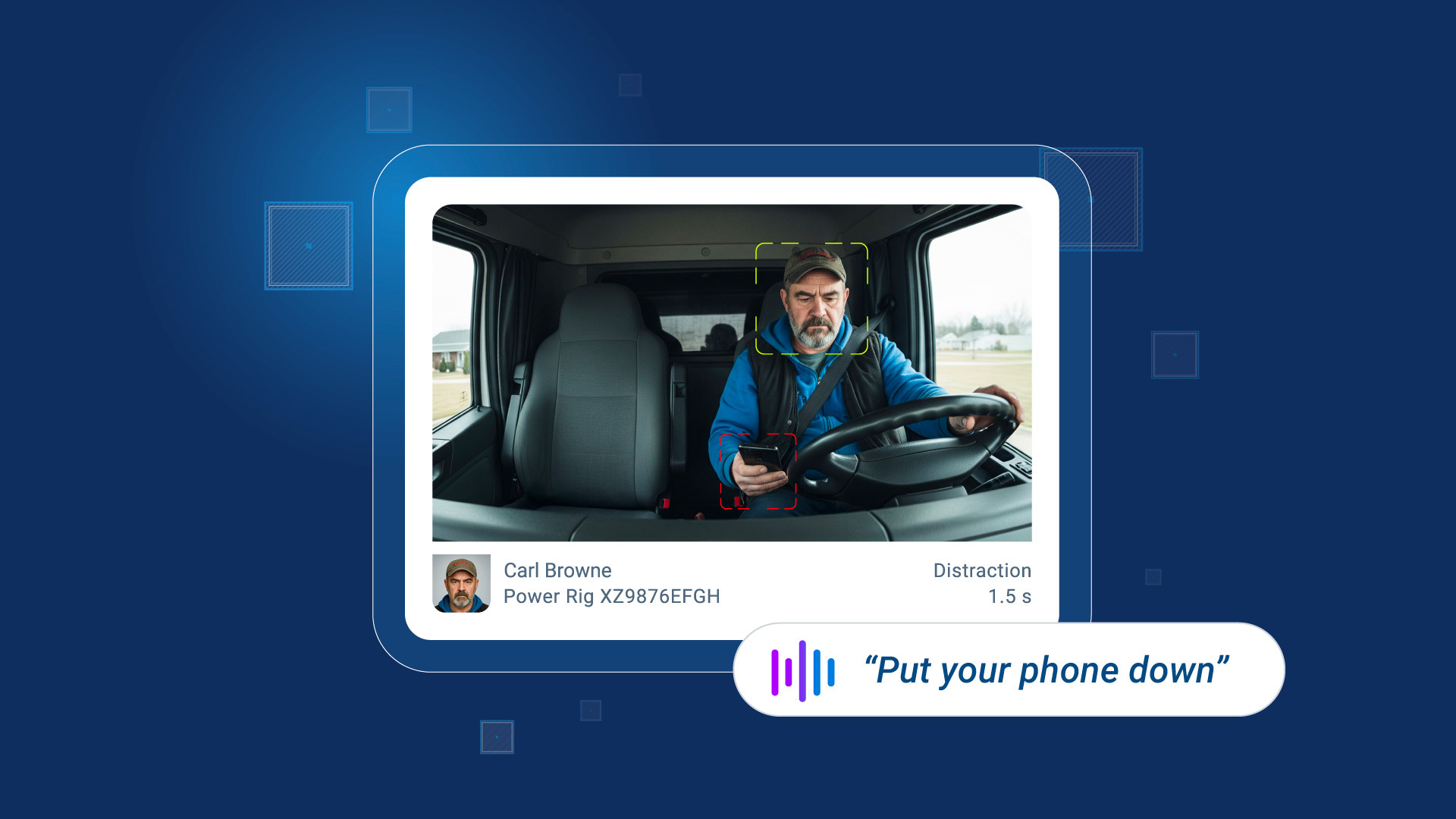3 tips for coaching drivers from the world of management
Learn ways to build your coaching skills.

By Melanie Serr
Nov 9, 2021

Despite the enormous effort and money spent on training and technology, coaching drivers continues to be a challenge for many companies. How do you make that happen?
We’ve compiled some key takeaways on employee coaching drawn from the world of management.
1. Empower your employees
Work closely with your employees to help them learn how to make better decisions. According to McKinsey & Company, empowering employees through coaching improved their decision-making ability by almost four times and increased performance as well.
Here are some ways to empower your team members:
- Schedule time to meet with them regularly.
- Create a development plan for them.
- Listen more.
- Trust that they can improve.
- Ask questions to understand the full picture.
Keep in mind that coaching is different from micromanaging. A micromanager is often over-involved and creates a negative impact.
Putting it into practice: Start early and provide “guidance and guardrails” for employees. Make it clear what the driving rules are for speeding and idling, as well as the consequences for breaking them. Waiting until an employee makes a major mistake is often too late.
2. Be transparent.
One way to build your relationship and set the foundation for coaching is to be transparent. Transparency means practicing open and regular communication with employees. Talk about your own goals and challenges. Having an honest conversation on both sides could encourage employees to open up and share their ideas and solutions.
Getting to know your team members as people is also a best practice for managers. Knowing their strengths, weaknesses, and motivations will support your coaching efforts.
Putting it into practice: Talk about the real impact that safety issues or collisions are having on the company. Sharing the overall goals can help drivers understand the reasons why safety is so important.
3. Practice makes perfect.
A study published in Harvard Business Review reveals that coaching is a skill that can be improved with training. The coaching study conducted by leadership experts Julia Milner and Trenton Milner included 98 people. The participants were provided leadership training and then asked to carry out coaching conversations. After this, they had further one-on-one training, then were given the opportunity to coach again.
Again, micromanaging was identified as a common error made. The major finding from this exercise was that the managers in the study were actually micromanaging — not coaching. Telling an employee what to do, even if it’s with good intentions, is not the same as coaching. Managers were rated higher on coaching after their second round of training.
There are nine specific coaching skills according to the authors:
- Listening
- Asking questions
- Providing feedback
- Helping set goals
- Empathy
- Allowing the employee to find their own solution
- Highlighting employee strengths
- Structure
- Focusing on solutions
Putting it into practice: Reading and learning about coaching is time well spent and may save you headaches in the future!
Conclusion
Coaching is a skill. Managers can by regularly learning to refresh and upgrade their skills. Brushing up coaching skills benefits everyone — from the manager, the employee, and ultimately the company.
Subscribe to get industry tips and insights

Melanie Serr is a Senior Manager, Brand Communications for Geotab with an eye on fleet safety and all things tech.
Subscribe to get industry tips and insights
Related posts
.png)
From the North Pole to the Highway: How AI and Predictive Insights Get Drivers Home for the Holidays
December 16, 2025
2 minute read
.jpg)
.png)
AI dash cams vs. traditional: Which delivers better fleet safety?
December 8, 2025
5 minute read

Elevating Worker Safety Through Simplicity: The OK Alone Story
December 3, 2025
2 minute read

Geotab GO Focus Plus Camera Rules, Thresholds, and Event Buffers Explained
October 27, 2025
2 minute read

How AI dash cams help fleets tackle distracted driving and reduce collisions
October 23, 2025
4 minute read